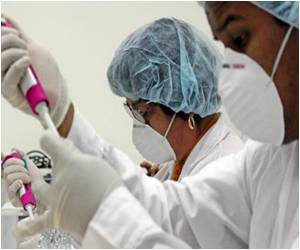Highlights
- The secret to extend life expectancy lies in the DNA, claims a new study
- DNA methylation is a biomarker for biological age, which can predict the risk of early death
- An epigenetic clock calculates the aging of blood, cells, and tissues and compares with chronological age to predict a person’s life expectancy
Horvath led a team of 65 scientists in seven countries to record age-related to DNA, calculate biological age (physiological age of the body) and estimate a person’s lifespan. “Our research reveals valuable clues into what causes human aging, marking a first step toward developing targeted methods to slow the process,” said principal investigator Horvath, a professor of human genetics and biostatistics at UCLA’s David Geffen School of Medicine and Fielding School of Public Health.
Epigenetic Clock Predicts a Person’s Life Expectancy
The epigenetic clock was developed by Horvath in 2013. The clock is a multi-tissue predictor of age that estimates the DNA methylation age of most blood, tissues, and other cell types. Methylation is a natural process that chemically alters the DNA over time. The clock was developed using 8,000 samples from 82 Illumina DNA methylation array datasets, encompassing 51 healthy tissues and cell types.
For the current study, scientists collected data from the Framingham Heart Study and Women’s Health Initiative that analyzed the DNA in the blood samples collected from more than 13,000 people in the United States and Europe. Using an epigenetic clock and other molecular methods, the scientists measured the aging rate of every individual. The scientists used the epigenetic clock to predict a person’s lifespan by comparing chronological age to biological age.
The findings showed that about five percent of the population ages at a faster biological rate, resulting in early death. Accelerated aging increases the risk of death by 50% at any age, said Horvath.
Studies have been carried out to identify biomarkers for biological age for years, said co-author Dr. Douglas Kiel, a professor at Harvard Medical School and a senior scientist at the Institute of Aging Research at Hebrew SeniorLife.
“In geriatric medicine, we are always struck by the difference between our patients’ chronological age and how old they appear physiologically. This study validates the use of DNA methylation as a biomarker for biological age. And if we can prove that DNA methylation accelerates aging, we can devise strategies to slow the rate and maximize a person’s years of good health,” said Kiel.
Co-author Dr. Themistocles Assimes, an assistant professor of cardiovascular medicine at Stanford University School of Medicine, said, “The role of epigenetic changes in aging and life expectancy remains unknown. Do the epigenetic changes associated with chronological aging directly cause death in older people? Perhaps they merely enhance the development of certain diseases--or cripple one’s ability to resist the progression of disease after it has taken root. Future research is needed to address these questions.”
“We must find interventions that prolong healthy living by five to 20 years. We don’t have time, however, to follow a person for decades to test whether a new drug works. The epigenetic clock would allow scientists to quickly evaluate the effect of anti-aging therapies in only three years,” said Horvath.
The study is published in the journal Aging.
Ways to Reduce Biological Age
Biological age is the actual age of the body. Some of the factors such as stress, fitness, nutrition, sleep pattern and relationship have an impact on the biological age.
- Lower your stress levels
- Eliminate toxins from the body
- Include antioxidant rich fruits and vegetables in the diet
- Drink plenty of water
- Engage in regular exercise
- Sleep for at least 7 hours
- Think positive
- DNA methylation age of human tissues and cell types - (https://www.ncbi.nlm.nih.gov/pubmed/24138928)











